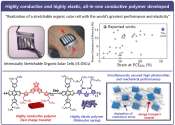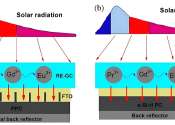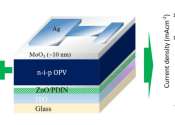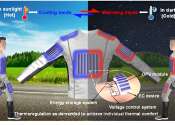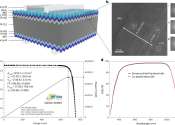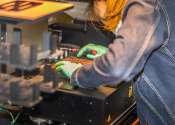Measurement technique sheds new light on semiconductors for solar fuels
Scientists are advancing the use of semiconductors to convert sunlight into renewable energy. In solar cells, semiconductors convert sunlight into electricity. When brought into direct contact with water, semiconductors can ...
Jan 10, 2024
0
1



